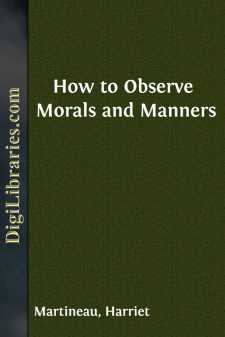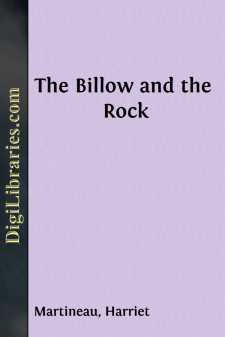Categories
- Antiques & Collectibles 13
- Architecture 36
- Art 48
- Bibles 22
- Biography & Autobiography 813
- Body, Mind & Spirit 142
- Business & Economics 28
- Children's Books 16
- Children's Fiction 13
- Computers 4
- Cooking 94
- Crafts & Hobbies 4
- Drama 346
- Education 46
- Family & Relationships 57
- Fiction 11829
- Games 19
- Gardening 17
- Health & Fitness 34
- History 1377
- House & Home 1
- Humor 147
- Juvenile Fiction 1873
- Juvenile Nonfiction 202
- Language Arts & Disciplines 88
- Law 16
- Literary Collections 686
- Literary Criticism 179
- Mathematics 13
- Medical 41
- Music 40
- Nature 179
- Non-Classifiable 1768
- Performing Arts 7
- Periodicals 1453
- Philosophy 64
- Photography 2
- Poetry 896
- Political Science 203
- Psychology 42
- Reference 154
- Religion 513
- Science 126
- Self-Help 84
- Social Science 81
- Sports & Recreation 34
- Study Aids 3
- Technology & Engineering 59
- Transportation 23
- Travel 463
- True Crime 29
How to Observe Morals and Manners
Description:
Excerpt
INTRODUCTION.
"Inest sua gratia parvis."
"Les petites choses n'ont de valeur que de la part de ceux qui peuvent s'élever aux grandes."—De Jouy.
There is no department of inquiry in which it is not full as easy to miss truth as to find it, even when the materials from which truth is to be drawn are actually present to our senses. A child does not catch a gold fish in water at the first trial, however good his eyes may be, and however clear the water; knowledge and method are necessary to enable him to take what is actually before his eyes and under his hand. So it is with all who fish in a strange element for the truth which is living and moving there: the powers of observation must be trained, and habits of method in arranging the materials presented to the eye must be acquired before the student possesses the requisites for understanding what he contemplates.
The observer of Men and Manners stands as much in need of intellectual preparation as any other student. This is not, indeed, generally supposed, and a multitude of travellers act as if it were not true. Of the large number of tourists who annually sail from our ports, there is probably not one who would dream of pretending to make observations on any subject of physical inquiry, of which he did not understand even the principles. If, on his return from the Mediterranean, the unprepared traveller was questioned about the geology of Corsica, or the public buildings of Palermo, he would reply, "Oh, I can tell you nothing about that—I never studied geology; I know nothing about architecture." But few, or none, make the same avowal about the morals and manners of a nation. Every man seems to imagine that he can understand men at a glance; he supposes that it is enough to be among them to know what they are doing; he thinks that eyes, ears, and memory are enough for morals, though they would not qualify him for botanical or statistical observation; he pronounces confidently upon the merits and social condition of the nations among whom he has travelled; no misgiving ever prompts him to say, "I can give you little general information about the people I have been seeing; I have not studied the principles of morals; I am no judge of national manners."
There would be nothing to be ashamed of in such an avowal. No wise man blushes at being ignorant of any science which it has not suited his purposes to study, or which it has not been in his power to attain. No linguist wrings his hands when astronomical discoveries are talked of in his presence; no political economist covers his face when shown a shell or a plant which he cannot class; still less should the artist, the natural philosopher, the commercial traveller, or the classical scholar, be ashamed to own himself unacquainted with the science which, of all the sciences which have yet opened upon men, is, perhaps, the least cultivated, the least definite, the least ascertained in itself, and the most difficult in its application.
In this last characteristic of the science of Morals lies the excuse of as many travellers as may decline pronouncing on the social condition of any people. Even if the generality of travellers were as enlightened as they are at present ignorant about the principles of Morals, the difficulty of putting those principles to interpretative uses would deter the wise from making the hasty decisions, and uttering the large judgments, in which travellers have hitherto been wont to indulge. In proportion as men become sensible how infinite are the diversities in man, how incalculable the varieties and influences of circumstances, rashness of pretension and decision will abate, and the great work of classifying the moral manifestations of society will be confided to the philosophers, who bear the same relation to the science of society as Herschel does to astronomy, and Beaufort to hydrography....









